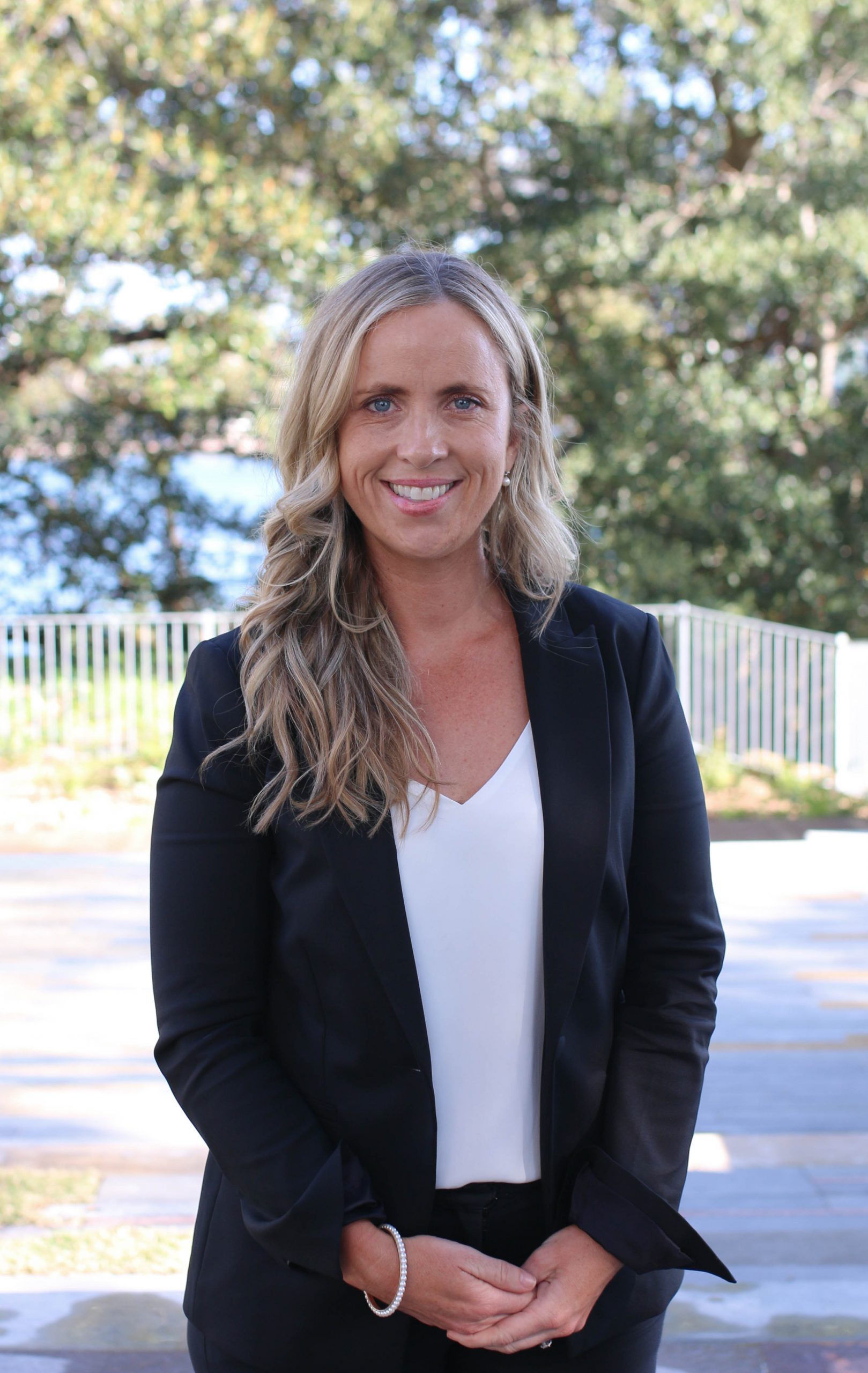While around 40% of women make up the global workforce, according to a report by The World Bank, the number of women working in technology is much lower. In the US, about 25% of the workforce are employed in technology (according to data from the National Centre for Women and Information Technology), while in Europe it hovers more around the 17% mark (according to the European Commission’s Women in Digital Scoreboard). There are still fewer girls taking STEM subjects at school than boys. Intelligent Tech Channels spoke to three women who work in the channel about their experience in the technology industry and how they discovered their role.
Suzanne Al Najjar, Channel Manager – KSA at A10 Networks 
Can you tell us a bit about your role and how you ended up in your current position?
I started working in the IT field in 2014 with a distributor for network and network security products. I then joined a system integrator as a territory sales manager, tasked with the role of expanding its market coverage. Following that, I joined Micro Focus to support the company in growing its business in Saudi Arabia. I then landed a Channel Account Manager role at A10 Networks in March of last year – a position that I currently hold.
Why is the technology industry such a male-dominated field?
I believe it’s a combination of culture, community and education. And the perpetuation of stereotypes that technology and all things technical are a man’s domain. However, the world is progressing and the gender gap is decreasing. We are seeing a rising involvement of women in the technology field, even in leadership positions.
Have you faced challenges within the industry because you are a woman?
I don’t really spend much time dwelling on these issues. Instead of thinking about myself as a woman in a male-dominated field, I simply focus on being the best. I believe that this attitude is what draws admiration and support from colleagues, which neutralises any negative gender issues.
What advice would you offer women who might be interested in pursuing a career in technology and in particular, the channel?
In my mind, there is no gender inequality when it comes to capabilities. Women are competent to do everything that men can do. And so, my advice to anyone pursuing a career in technology would be to, ‘Believe in yourself and work with passion’.
Dee Clinton, Head of Partner Sales and Alliances, Asia Pacific at Vectra AI
Can you tell us a bit about your role and how you ended up in your current position?
I began my career in IT in 1997, working for a Microsoft reseller. I eventually ventured into the security space about 10 years ago and haven’t looked back since. I have built a career working in the channel and find it truly rewarding.
Vectra’s unique approach of using AI-driven network detection and response for cloud, data centre, IoT and enterprise, rather than basic anomaly detection, is a game changer, so this really caught my attention and is a big reason that I decided to join the company in the summer of 2019. My role at Vectra is to work with channel partners across APAC that have a requirement to support their customers with a Network Detection and Response (NDR) solution. My role aligns closely with our sales and marketing teams and the channel to deliver world class AI-driven security solutions to market.
Why is the technology industry such a male-dominated field?
Like all industries, a lot of it has got to do with the ingrained cultural aspect (that we are all working to change) but this is particularly true in IT and within the wider IT discipline, specifically security. We all have a role to play in developing women’s interest in STEM subjects early in life, encouraging women to pursue a career in technology; something they might not have traditionally thought of, and advocating for companies to walk-the-talk when it comes to equality in hiring and compensation.
The good news is that we are already seeing positive changes with more female representation on company boards, and I know of several amazing individuals and organisations that are working hard to affect change. I will always do my part to help.
Have you faced challenges within the industry because you are a woman?
I can’t say that I specifically recall any major challenges being a woman in the industry, though one area that needs improvement is equal pay. I long for the day when I won’t get asked questions around why men and women in our industry aren’t equally compensated. That aside, overall, being aware of my environment, speaking up (this is always top of mind) and having male and female champions of change around me have always given me the confidence and have allowed me to excel in the various roles I have held over the years.
What advice would you offer women who might be interested in pursuing a career in technology and in particular, the channel?
Rule one, do not hesitate! Do your research on organisations that have a world class channel programme and team, reach out to a contact within those organisations, ask questions and remember everyone around you is a resource. Ask if you can shadow a channel leader for a day or a week. One of the aspects I love the most about working in the security channel is the ability to interact with people from a myriad of cultures; technology tends to be a common language across all cultures.
Amanda Adams, Senior Director, European Alliances, at CrowdStrike
Can you tell us a bit about your role and how you ended up in your current position?
As the leader of CrowdStrike’s European Alliances Organisation, I am focused on establishing, enabling and growing CrowdStrike’s partner ecosystem. Our partnerships include solution providers, MSSP partners, technology alliances and cloud partnerships. I have been with CrowdStrike for over four years – always within the Alliances organisation. In January 2020, my focus shifted from leading our Nationals North American team to European Alliances, in order to build upon and grow our channel team across Europe.
I wasn’t the typical person you would expect to end up in STEM; throughout school I was very much into athletics and played volleyball through college! However, through a mentor of mine which I had at that time, I was brought on at Cisco to support US Channel Partner Marketing efforts. It was really that connection that led me into the career I have in technology today.
Why is the technology industry such a male-dominated field?
The hardest thing about getting women into technology is that first role. You simply don’t have the network you need to begin with and, as a result, you don’t really know what’s achievable. For example, there are so many roles that you can discover within cybersecurity that make a huge difference and aren’t necessarily STEM-focused; there is an important education piece here so that women are aware of the opportunities that are available to them. By participating in women in cybersecurity or technology groups and showcasing the impact women can make in all functions – we can increase the visibility of what is possible!
Education and programmes focused on increasing participation by girls in STEM fields needs to begin in early education at school. Research shows that girls and women lose interest in STEM subjects as they get older. We need to be sure that we are nurturing passion for STEM early on so that it stays with them as they progress.
Have you faced challenges within the industry because you are a woman?
I think that, generally, there is a higher standard for women. Women are still expected to be primary caregivers as well as being fully present at work. To me, having work life balance is a myth and one cannot have it all. If you are focused on work fully, your personal obligations will suffer and vice-versa. Finding an employer who is empathetic towards flexing with the reality of personal obligations (especially now that most children are at home in virtual schools during COVID-19) and works with you to build a plan for success together, is critical.
Most start-up companies tend to rely heavily on employee referrals for open positions and tend to hire people that they know and can vouch for. When an industry is dominated by a specific demographic who do not have a diverse network to refer from, this can make things really challenging for those who don’t quite fit the mould. This is why it’s super important to have a really strong diverse network.
What advice would you offer women who might be interested in pursuing a career in technology and in particular, the channel?
For technology more broadly, I would really suggest investing time in finding programmes that help to nurture and empower STEM skills. CrowdStrike actually supports a few such initiatives. One of the programmes CrowdStrike supports is Black Girls Code, and there are many similar ways that the tech industry is reaching out to increase diversity and make the industry reflective of, and better serving, all of society. I would also really recommend trying to find a mentor or support group. I have a great group of women I still call on that I met at college, and in my very first job, that I still talk to and ask for advice.
When it comes to the channel specifically, if you’re interested in getting involved, invest time in having conversations with people in your existing organisation. Something similar happened to me recently when a member of our SDR (sales development) team got in touch enquiring about working in the channel and I walked her through a ‘day in the life’. There are also lots of different ‘Women in the Channel’ groups on platforms such as LinkedIn.




